FATA reforms: doubts cast before implementation
PPP leader says ‘corrupt mafia’ would never let reforms be implemented
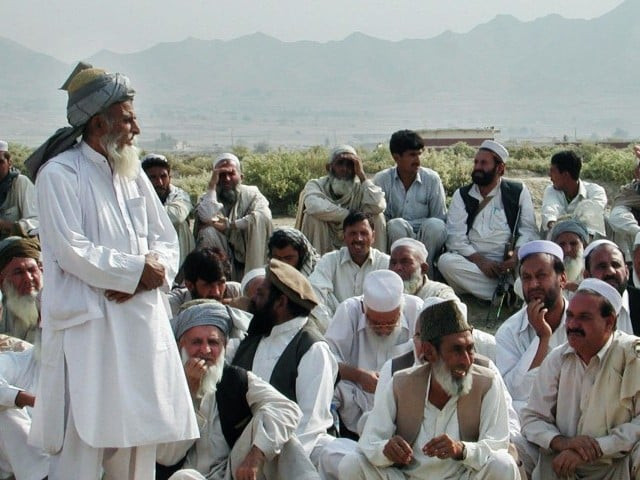
PHOTO: FILE
What was expected an informed discussion on such an important subject, most of the members who have spoken so far, have focused mainly on just one proposal – merger of Fata with the Khyber-Pakhtunkhwa.
Political economy of FATA reforms
A handful of lawmakers, including those representing Fata, touched upon other proposals delineated in yet another report compiled by a special committee formed by government last year.
The region lags behind the rest of the country in terms of almost all development indicators. It has an overall literacy rate of 33.3 percent, but just 12.7 percent of its women are literate.
Sartaj Aziz-led committee in its report stated that it considered four options relating to the future status of Fata: maintaining a status quo but introducing judicial and administrative reforms; creating a Fata council similar to one in Gilgit-Baltistan; making Fata a separate province and integrating Fata with Khyber-Pakhtunkhwa.
The committee, claiming majority of tribal elders favoring integration of Fata with K-P, proposed a five-year transition period before the merger. Before this, the committee proposed restoring peace, rehabilitating people displaced from the areas during the military operation against terrorists.

It set December 31 this year as the target date for the return of IDPs, a deadline which might appear unfeasible.
For implementing the 10-year development plan, the committee suggested allocating three percent of resources from the federal divisible pool to Fata. Under this scheme, Fata would be getting Rs90 billion every year for the development plan. Immediately after rehabilitating IDPs, the committee proposed holding local government elections in Fata by the end of next year.
Legally, the panel recommended extending the Supreme Court and Peshawar High Court’s jurisdictions and replacing FCR with ‘Tribal Areas Rewaj Act’. The report only mentioned a few points of this proposed act. It intends to retain ‘jirga’ system for both civil and criminal matters but suggests doing away with the provision of collective responsibility. Judges will appoint the council of elders to hold jirgas which would function like “jury system”.
Most proposals in the committee’s report are practicable if not revolutionary. A healthy debate on question of merger should be welcomed, but it should not distract from the core factor: people of Fata were chronically deprived of their basic rights.
Akhunzada Chittan, a former MNA of PPP from Bajaur agency and incumbent President of his party’s Fata chapter, in an interview with The Express Tribune cautiously welcomed the report, but doubted its implementation. Chittan, who is also President of All Parties Fata Alliance, which represents all political parties in Fata, says the situation was most conducive for implementing reforms if the government had the will to do so.
Fate of Fata: PM chairs meeting on Fata reforms today
“If you talk about writ of government, I would say there is more writ in Fata than in Islamabad these days. But if you link (implementation of reforms) with restoration of peace, it will never happen. It is contingent upon peace in Afghanistan and our Afghan policy,” he said.
He said except for PkMAP, and some reservations from the JUI-F, other parties in the alliance favoured Fata’s integration with K-P. However, he doubted that targets set in the report would be met.
“This is fifth such committee which has submitted its report. Most of the proposals are similar in nature but they look good only on paper. They were never implemented,” he said, citing examples from the past.
According to him, the actual impediment in implementation of reforms is what he called the “corrupt mafia”, comprising Fata secretariat, governor secretariat and the political administration.
He claimed that posts, ranging between political agent and lower cadres, are sold in millions of rupees. “Do you know the going rate for appointment as a political agent for one year? … It is Rs800 million. Similar amount of money changes hands for appointments on posts of assistant political agents, additional political agents and tehsildars.”
“Even a subedar of levies has to pay Rs2 million in bribes to be appointed at the Torkham border. Their average monthly earning is between Rs200,000 and Rs1 million depending on the border situation. A political agent earns Rs10 to Rs20 million a day in this nexus, he claimed.
“Where do they earn this money from? One main source of this income is illegal trade on the border which runs into billions of rupees … Containers carrying various items destined to Afghanistan, are cleared on paper by Pakistani officials on this side, showing these have gotten into Afghanistan. Corrupt counterparts in Afghanistan receive the goods on paper but these goods are actually sold in the black markets in Pakistan. Of the Rs19 billion annual grant given to Fata by the federal government, hardly Rs50 million are spent on development schemes … the rest is embezzled. Officials with unbridled powers in the political administration under FCR impose heavy fines on people.
If a person is booked riding a bike while administration has imposed a ban, they impose a fine of Rs15,000. Due to poor communication networks most people are not aware when the ban was imposed and when it was lifted. Fines imposed on different pretexts run into millions of rupees and add to the ill-gotten income of these officials, he added.
Published in The Express Tribune, October 3rd, 2016.


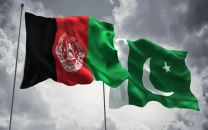

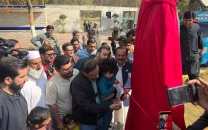

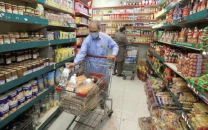
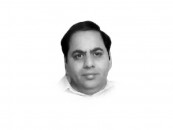





COMMENTS
Comments are moderated and generally will be posted if they are on-topic and not abusive.
For more information, please see our Comments FAQ